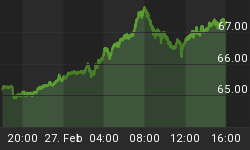The question of illegal immigration has finally come to the boil in the US. In doing so it has exposed as nonsense the arguments of those who say that legalising the current status of illegals will promote growth. This attitude is boneheaded to say the least. Yet this is precisely where the Wall Street Journal. A while ago it published an article by Mary Anastasia O'Grady arguing that the real problem is not immigration per se but
the serious mismatch between high demand in the US labor market for low-skilled foreign workers and the currently unrealistic US immigration policy" (Treating Immigrants Humanely 30 August 2004).
First and foremost, the argument is not about immigration but illegal entry into the country. That the Journal always refers to "immigrants" rather than illegals suggest, at least to me, that it is being deliberately dishonest. Now for O'Grady. All she did was to spin the argument that the so-called 'immigration' question is really a labour shortage problem. This is an incredibly simplistic view for a financial paper to support, and one that clearly misconceives the true economic situation. Why there is an apparent shortage of unskilled labour is a question that these apologists for unrestrained immigration beg rather than ask.
We need to start with a couple of basic economic principles. When the demand for labour rises, so do real wages. When the supply of labour increases, real wages must fall if widespread unemployment is to be avoided. (For the sake of simplicity, I'm treating labour as homogeneous). The demand curve for labour consists of a descending array of marginal productivities. The wage rate will be determined at the point where labour's supply curve intersects the demand curve. At this point the value of labour's marginal product will equal its wages.
It's obvious that if the supply of labour increases the supply curve will shift to the right and down the demand curve until it reaches a new market clearing rate. It's equally obvious that the new rate will be lower than the old one. This is what ordinary Americans instinctively understand and fear. Although this line of reasoning is economics 101, immigration supporters manage to completely overlook it, just as they overlook another basic and very important element: capital accumulation, the process that shifts labour's demand curve to the right by raising productivity and hence real wage rates.
When capital accumulation exceeds population growth labour becomes increasingly scarce relative to capital and so wage rates rise. Should the supply of labour exceed the rate of capital accumulation, real wage rates will fall. Now increasing the labour supply through immigration does not always cut real wage rates. What it can do is greatly retard the rate at which real wages grow. This is what happened during the period 1896-1916 when European immigrants flooded into the US, reducing the annual increase in wages from 1.27 per cent to 0.55 per cent.
Though we must be careful of averages and bear in mind that they hide fluctuations, there is very little doubt that illegal immigration has had a negative impact on US wage rates, particularly of the unskilled. A study by the UCLA Chicano Studies Research Center concluded that the flow of illegals drove down local wages by 11 per cent.
If this line of reasoning is correct, why is there a shortage of unskilled labour? This question returns us to capital accumulation. As I pointed out earlier, as capital becomes more abundant relative to labour real wage rates must rise. However, this means that labour intensive activities where productivity is more or less fixed and demand has not risen significantly find they are unable to pay the new rates. But this is to say no more than labour is more highly valued in other lines of production.
Trying to solve this so-called labour problem by lowering wage rates through immigration is regressive. What these producers are really trying to do is use immigration to offset the beneficial effects of capital accumulation. Taken to its logical conclusion this argument would have the US implement an immigration policy that would try to expand the labour supply in line with investment so that real wage rates never rose. I would hazard a guess and say that the so-called rising demand for low-skilled labour could be a healthy signal that many low-paid jobs are being priced out of existence by the market place.
A note on free market economics and immigration: There is a peculiar misconception that a belief in free markets must mean support for open borders. It does not. This is like saying that a belief in hospitality means that one should allow any Tom, Dick or Harry freedom to enter one's home at will. Those who subscribe to this fallacy have yet to explain how a policy that would dramatically drive down wages rates would benefit American.















